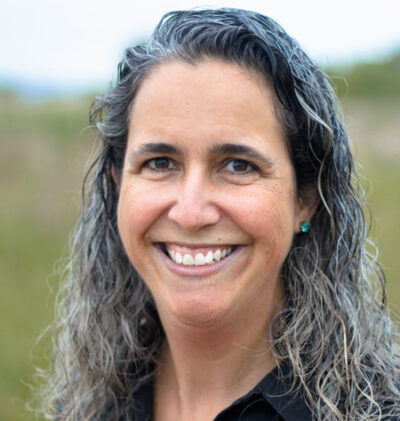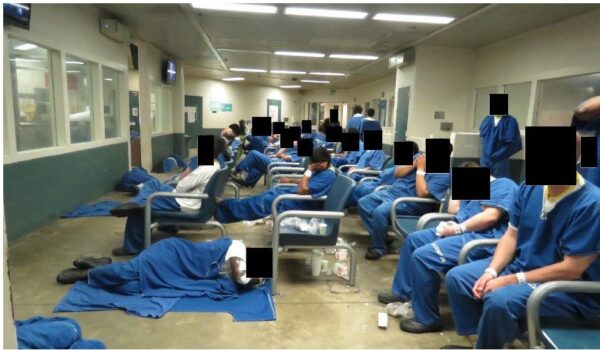ACLU Reaches Landmark Settlement in L.A. County Jails Case
LOS ANGELES – Today, U.S. District Judge Dean D. Pregerson approved an extraordinary settlement between people incarcerated in Los Angeles jails — represented by the ACLU National Prison Project and ACLU Foundation of Southern California — and the L.A. County Board of Supervisors and Sheriff Robert Luna. The agreement makes permanent many remedial efforts in the L.A. County Jails’ Inmate Reception Center (IRC) thanks to litigation by the ACLU.
“This is a watershed moment for the ACLU’s jail and prison decarceration movement,” said Corene Kendrick, deputy director of the ACLU National Prison Project. “This is the first time in the country a jurisdiction that we or other advocates have sued agreed that the cornerstone to addressing abysmal jail conditions and overcrowding is to reduce the number of people coming to jail in the first place and to create alternatives to incarceration. A person cannot get well in a jail cell.”
The agreement includes a requirement that the county will create at least 1,925 new community beds as alternatives to jailing people with mental illness. Close to 1,700 of those new placements will be online within the next two years.
L.A. County also agreed to increase mental health staffing in the IRC. They will screen and prescribe medication for people while they are still in the IRC going through the intake process or within 24 hours of being moved out of the IRC elsewhere in the jail.
Numerous incarcerated people who had their medication discontinued upon arrest/intake reported to the ACLU and the court that they had suffered severe psychological distress. Studies have shown that more than 40% of jail suicides happen in the first seven days after being jailed, and a quarter of all suicides occur in the first three days.
“A crowded jail is a jail with all sorts of horrific problems,” said Peter Eliasberg, chief counsel at the ACLU SoCal. “The root cause of all of this is the county’s failure to bring the jail population down. The county supervisors simply have not funded their ‘care first, jails last’ mandate, and it’s time they begin. They’re committing to do that now, and we will be monitoring closely to see that they do.”
Rutherford v Luna now has six new permanent orders, imposing certain timelines in the IRC and standards for cleanliness and medical and mental health care. L.A. County is permanently prohibited from:
- Holding an incarcerated person in the IRC for more than 24 hours;
- Holding an incarcerated person on the IRC Clinic Front Bench, handcuffed, chained, or tethered to a chair or any other object, for more than four hours;
- Holding an incarcerated person in an IRC holding cell for more than 12 hours total, or holding more people in a holding cell than its rated capacity;
- Holding an incarcerated person in the IRC Clinic cage, when locked, for more than eight (8) hours total;
- Holding an incarcerated person in the IRC Clinic area, cage, or any cell in the IRC when that location is not in a clean and sanitary condition, with access to functioning toilets, potable drinking water, clean water to wash, and sufficient garbage receptacles;
- Holding an incarcerated person in the IRC clinic area, cage, or any cell in the IRC without providing ongoing access to adequate medical and mental health care, including but not limited to regular pill call.
If conditions in the IRC deteriorate again, and the county has not brought the promised beds on line, they will now answer to a federal judge. The county will have to provide quarterly reports to the court and to the ACLU on their progress in complying with the requirements of the stipulation. The ACLU will continue to monitor if the county is staying on track with these reforms and raise it with the court if they falter.
“In the IRC, people have had to wait without beds and with access to little food. At times in the past year, the IRC was full of trash and human waste. Hundreds of people waited in the IRC for five to seven days. People with severe mental illness or in states of detox were chained to chairs for up to 100 hours at a time,” said Melissa Camacho, senior staff attorney at the ACLU SoCal. “Until now, the county has not dealt with the underlying issue: overcrowding in the LA Jails that creates a bottleneck in the IRC.”
Read the full stipulation here. Learn more about the Rutherford case here.



